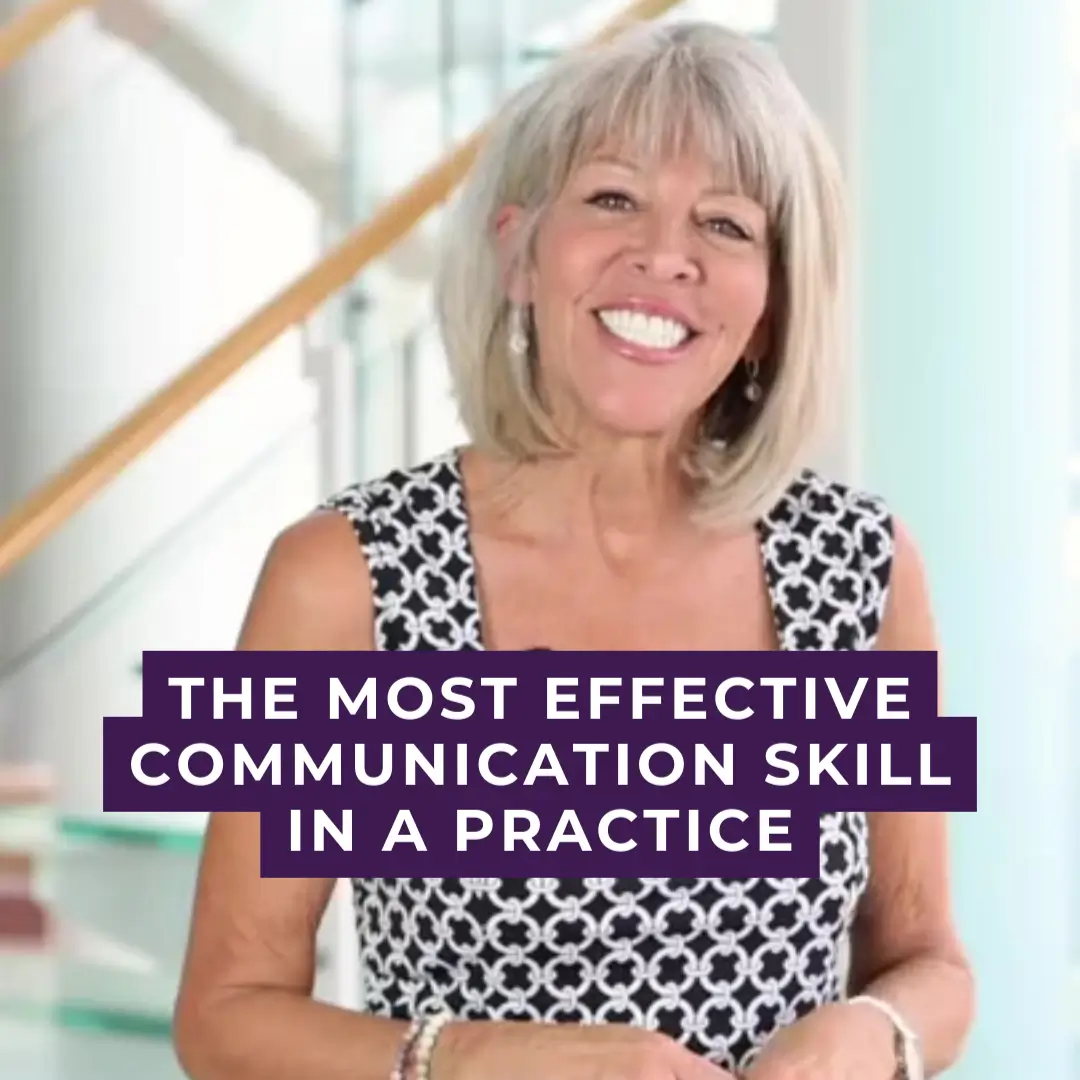Asking good questions is an important skill that can help you gather information, stimulate critical thinking and facilitate meaningful communication. Both asking and answering questions are important parts of effective communications for your practice with your clients and team members. The types of questions you ask should capture the recipient’s attention, heighten their curiosity, reinforce key points, and encourage active communication.
The following are a list of question types based on Benjamin Bloom’s six cognitive levels from the University of Waterloo, Centre for Teaching Excellence.
Asking Questions: Six Types:
1. Knowledge – identification and recall of information
What are your goals for your teeth, your mouth and your smile?
What do you believe is the condition of your mouth?
2. Comprehension – organization and selection of facts and ideas
What has been the focus of your past dental care?
What do you mean when you use that word/concept?
3. Application – use of facts, rules and principles
How do you prioritize your tasks and manage your time effectively in our practice?
How would you like to take care of your investment?
4. Analysis – separation of a whole into component parts
How do you approach problem solving when faced with complex issues with regards to our patients?
How do you feel about the amount of time and energy you invest for the result you achieve?
5. Synthesis – combination of ideas to form a new whole
What challenges do you face in your roles, and how can you overcome them?
Where would you like to be in the next three to five years with your dental health?
6. Evaluation – development of opinions, judgments, or decisions
What have you been thinking about that crown since the last time I saw you?
What are your expectations of (us, me as your dental practice, or dental professional)?
These types of questions are open-ended. They are an interviewing style of communication.
Open-ended questions are designed to encourage thoughtful and detailed responses from the person being asked. They typically require more than a simple “yes” or “no” answer and allow the respondent to provide their perspective, insights, or experiences. Here are a few more examples of open-ended questions for your team members and clients:
When would you like to reserve your appointment?
Where do you want to be in five years with your teeth?
Where would you like me to start?
How do you feel about that?
How was your appointment today?
What are your concerns?
What is your understanding of why you need this?
What are you noticing about your symptoms?
Tell me, how I can help you?
Help me to understand what you mean by …
What questions do you have for me today?
Have a clear objective with effective questioning to help elevate your communication within your practice. Be an active listener and lead with fairness and objectivity and your collaboration and communication will soar. Remember, effective communication is a continuous process. Regularly assess your communication strategies and adapt them based on feedback and the evolving needs of your team and clients.
Connect with us at 1-800- 345-5157 or email at info@tcgdds.com for the right practice management solution for your practice.

